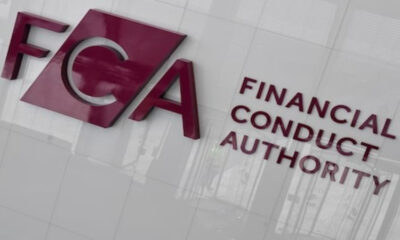Business
Fintech Regulation in the UK: Striking Balance Between Innovation and Oversight

Introduction
The United Kingdom has long been a global leader in financial innovation. London’s fintech landscape, home to a mix of traditional banks and digital challengers, represents one of the most dynamic markets in the world. Yet as rapid technological advancement reshapes financial services, policymakers face a defining challenge: maintaining a balance between fostering innovation and ensuring robust oversight. The outcome of this balancing act will determine how effectively the UK retains its position as a fintech hub while protecting market integrity and consumer trust.
The Evolution of the UK’s Fintech Ecosystem
Fintech in the UK began as a response to inefficiencies in traditional finance. Early innovators capitalised on open banking reforms and rising consumer demand for faster, transparent services. This created a fertile ground for startups specialising in digital payments, peer-to-peer lending, and financial analytics. As venture capital flowed into the sector, London established itself as a testing ground for global innovation.
However, the expansion also introduced risks. Data privacy concerns, uneven regulatory interpretations, and a surge in complex digital assets prompted authorities to strengthen their approach. The Financial Conduct Authority (FCA) now operates as a key facilitator of growth while serving as the primary guardian of compliance. Its model demonstrates that regulation can encourage experimentation if built around principles of proportionality and transparency.
Balancing Innovation with Accountability
The UK’s regulatory philosophy revolves around outcome-based frameworks rather than rigid rules. This approach enables flexibility for firms to design their own risk management systems while meeting defined standards. The challenge lies in translating high-level principles into actionable safeguards without stifling creativity.
Fintech companies frequently encounter the tension between regulatory clarity and operational agility. The absence of prescriptive rules can encourage innovation but also leave firms uncertain about the limits of compliance. As new technologies such as artificial intelligence and blockchain integrate into financial systems, regulators must evaluate how traditional oversight applies to algorithmic decision-making, automated credit scoring, and decentralized transactions.
Recent initiatives show progress. The FCA’s Innovation Hub provides direct support to startups navigating licensing procedures and compliance frameworks. By offering a structured environment for testing, the regulator reduces the barriers to entry while promoting responsible experimentation.
Global Competition and Policy Adaptation
Fintech regulation is now a matter of global strategy as financial centres compete for technological leadership. Singapore, New York, and Frankfurt have each developed sandbox frameworks similar to the UK’s. The key question is how the UK can preserve its early-mover advantage.
Brexit initially introduced uncertainty around passporting rights and market access. Yet the government has responded by pursuing bilateral cooperation on digital finance with partners such as Singapore and Australia. These agreements help align data standards and create pathways for international expansion.
Another crucial factor is talent. The UK continues to attract skilled professionals in data science, compliance, and financial analytics, but global competition is intensifying. Regulators are expected to maintain agility to ensure that the country remains attractive to investors and innovators alike.
Behind the policy architecture lies a growing recognition that regulatory technology will define the next phase of competitiveness. Tools that enable real-time compliance, benchmark analysis, and cross-system interoperability are becoming standard practice among forward-thinking fintech firms. These systems, inspired by advanced benchmarking methodologies in the financial sector, represent a quiet but significant transformation in how oversight operates. They reduce administrative burdens while strengthening transparency, exactly the qualities policymakers want to promote.
Consumer Protection and Data Ethics
While innovation drives efficiency, it also magnifies risks for consumers. The UK’s commitment to fair treatment and transparency remains central to maintaining public confidence. The FCA continues to refine guidelines on data ethics, particularly around algorithms that influence credit access and investment advice.
Consumers increasingly share sensitive information through mobile platforms. Ensuring the secure handling of that data requires coordination between technology providers, financial institutions, and regulators. The Data Protection Act and the UK GDPR form the legal foundation, but evolving digital behaviour demands more than compliance, it requires a culture of ethical awareness within firms.
Several fintech leaders have adopted voluntary codes that exceed regulatory requirements, demonstrating that strong governance can be a competitive advantage. The industry’s future will depend on whether such initiatives become mainstream practice or remain isolated examples.
Investment Trends and Market Outlook
Investor sentiment toward fintech remains cautiously optimistic. While venture capital funding slowed in 2023 due to higher interest rates, activity began to rebound in late 2024 as confidence returned to equity markets. Analysts expect continued growth in payment infrastructure, digital asset custody, and embedded finance solutions.
Policy support remains robust. The government’s Edinburgh Reforms aim to modernize financial services regulation and simplify capital-raising procedures. By reducing friction for innovative companies, the UK hopes to attract a new wave of fintech investment.
At the same time, scrutiny will tighten around sustainability claims, crypto-asset stability, and data integrity. Firms capable of integrating compliance automation with transparent governance will likely secure an edge in both reputation and funding.
The Role of Collaboration and Knowledge Sharing
One of the defining strengths of the UK’s regulatory environment is its openness to dialogue. Fintech associations, universities, and policy think tanks contribute actively to shaping future frameworks. Collaborative networks ensure that policy reflects both market realities and technological capabilities.
Benchmarking initiatives within the sector have helped identify best practices across payment systems, lending models, and data verification. These efforts, often supported by private-public partnerships, demonstrate how analytical rigor can improve resilience without restricting growth.
Such cooperation exemplifies the new regulatory paradigm: adaptive, data-driven, and rooted in shared accountability. London’s ability to maintain this collaborative ethos will determine its continued prominence in global fintech leadership.
Conclusion
The evolution of fintech regulation in the UK illustrates the complex interplay between innovation, governance, and trust. London’s continued success depends on its capacity to adapt regulatory models to emerging technologies while retaining its pro-innovation spirit.
By fostering transparent communication, encouraging ethical standards, and embracing advanced compliance systems, the UK is positioning itself to remain a global fintech centre. The path forward will not be without obstacles, but the foundations are strong. If policymakers, regulators, and entrepreneurs sustain this balance, London will continue to define the standards of responsible innovation in the digital finance era.






















